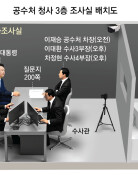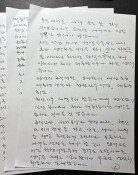Struggling petrochemical sector must restructure to survive
Struggling petrochemical sector must restructure to survive
Posted December. 24, 2024 08:04,
Updated December. 24, 2024 08:04
The government held a ministerial meeting on Monday to strengthen industrial competitiveness and proposed measures to support the petrochemical industry, which has been under pressure from China's low-cost competition. The government plans to enhance financial and tax support to facilitate business restructuring, including plant sales and mergers and acquisitions (M&A). It also considers designating regions facing challenges in the restructuring process as "industrial crisis preemptive response areas." Additionally, 3 trillion won in policy financing will be provided to ease liquidity, and a roadmap for R&D investment will be established to transition the industry toward high-value-added businesses.
Petrochemicals were once Korea's fifth-largest export, but in recent years, the industry has been pushed to the brink by oversupply from China and sluggish global demand. The strategy of exporting about half of its output while focusing on general-purpose products has reached its limits. The cumulative operating profits of the country's six major petrochemical companies have halved in the first nine months of this year compared to the same period last year.
The problem is that the situation is unlikely to improve moving forward. In the past, there was a three- to five-year business cycle and a "hang in there" mentality, but now the consensus is that the industry is facing a structural decline. China's low-cost offensive is challenging enough, but the situation has worsened as Middle Eastern oil producers, who previously focused solely on crude oil, have begun investing in petrochemicals. Middle Eastern countries, having invested more than 100 trillion won in the petrochemical sector, aim to match Korea's production levels in the future, which is expected to intensify the oversupply issue further.
Restructuring toward higher-value-added businesses is essential to overcome the crisis in the petrochemical industry. Japan successfully addressed its petrochemical industry crisis since the 2010s through proactive business reorganization, including mergers, facility closures, and repurposing. Restructuring at the individual company level is insufficient; the government must take the lead. If Korea misses this golden opportunity to strengthen its key industries due to political circumstances, it will be difficult to expect another chance in the future.







